Lifelong learning has become an integral part of the knowledge economy. Increasingly, adults are seeking to upgrade their skills, progress in their careers, and embark upon new career paths. Today’s multi-career economy and digital landscape additionally lends itself to the desire to obtain new skills through continuing education.
Your adult learners are out there — researching and looking for your adult learning programs. So how do you tap into the continuing education market and effectively recruit students for continuing education?

Read next: 4 Strategies to Optimize Your 2021 Higher Education Lead Generation
Increasing demand for career building
The combination of more successful recruiting tactics and an increasing desire for career development has led to a surge in demand for career building educational courses — especially those that lead to professional accreditation. Adults realize that to stay competitive in the workforce, they need to stay up-to-date on technologies and education.
What motivates students to enroll in continuing education?
We’ve found that successful program recruiting appeals to the diverse motivations of student demographics. Adult learner demographics are more broad of a sweep than your average undergraduate prospective student. Adult learners are in various different points in their lives, careers, and families, and they’re looking to pursue higher education for reasons that meet these life stages.
Want a full breakdown of what influences adult learners to enroll in continuing education? Download our free ebook here.
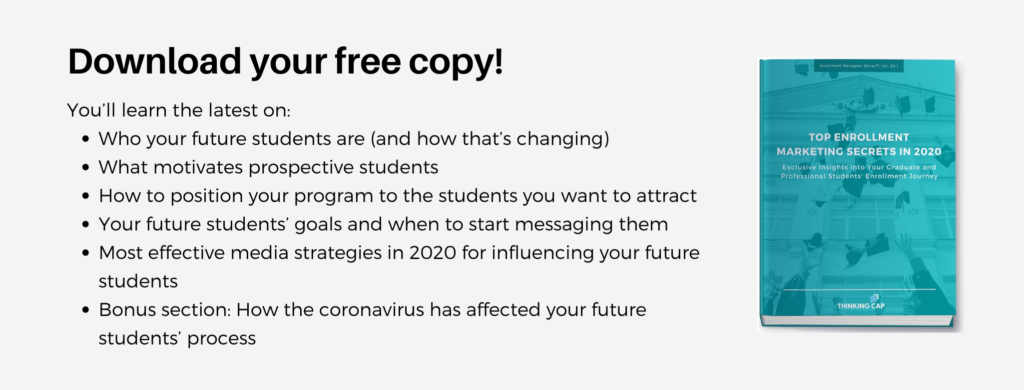
Read next: Your Complete Guide to CRM for Higher Education
Optimize your application process
When creating your application process, it’s essential to take your adult learners’ preferences into account. Some adult learners prefer courses that are open enrollment and only require a sign-up with a credit card, while others are partial to a formal application that can be completed in a few hours on a mobile device.
Additionally, since many of these adults are at least a few years out of school, if not many, obtaining letters of recommendation and official transcripts may be more difficult compared to undergraduates.
Ensure your website answers adult learners’ questions
Your website is often the first place your prospective students are interacting with your school — meaning that the information you present at first glance is crucial. We know your prospective students are researching your school between six months and two years in advance, so utilize your website’s real estate to answer all of their questions right off the bat.
Making sure your website’s content reflects your prospective adult learner students’ search queries is also a key pillar of an SEO for higher education strategy. Increasingly, search algorithms are geared towards delivering search results that answer naturally-phrased questions that people are either typing or asking through voice search. Including these questions and phrases in your FAQ page and website content allows your website to serve as an active recruitment tool.
Example: University of San Diego offers an extensive FAQ section on each continuing education course page that answers the questions prospective students might be asking.
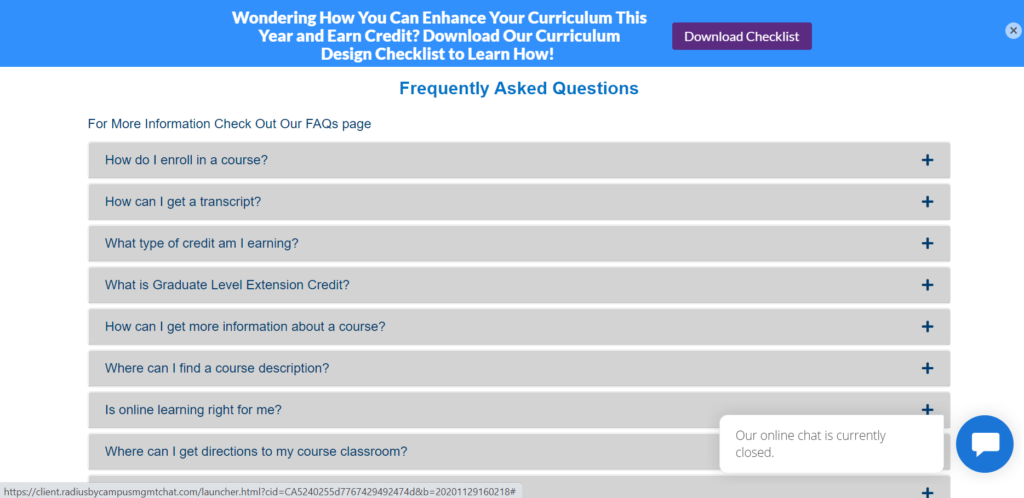
Branch out on social media
Prospective students of all ages are looking to social media to gather information about brands, people, and communities that are of interest to them — and your continuing education programs are no exception. Adult learners are looking to social media to understand what your school is all about, what the culture is like, how the program works, and whether the program would be a good fit for them.
Your continuing education program should have its own dedicated social media presence, as your adult learners will likely have different interests than your undergraduates will — and you can better serve your audience by being specific and targeted.
Emphasize real-world application and emerging technology
We know from our research that adult learners have very specific goals for their higher education pursuits — and those goals are very practical. They’re pursuing continuing education overwhelmingly to advance their careers, and so they’re looking for programs that will definitively help them achieve those goals.
When recruiting adult learners, emphasize the relevancy of your programs. Practical and results-oriented adult learners want to see clear connection between the covered material and real-world application.
Be where your prospective students are
The range of continuing education courses is broad — so effectively advertising yours has everything to do with identifying your specific student niche and showing up where they are.
For example, if you’re promoting an online marketing certification, you need to find the forums, websites, and publications that aspiring marketers are reading. You can use banner ads through industry-specific channels, native advertising (which blends in with the platform’s editorial content), or dedicated emails through industry-specific channels.
Offer and communicate flexibility
While adult learners have always valued a flexible learning program that allows them to pursue their education while balancing their careers and families, in a post-2020 landscape — this preference is all but required.
Offering part-time, weekend, or night courses will attract adult students that have personal or work obligations. And offering online courses, if possible for your programs, allows students to learn remotely and take courses they may otherwise have not had access to.
Read next: The Future of Higher Education is Here: 3 Pivots for Smart Enrollment Marketers in 2020
Create landing pages for each individual program
Your continuing education program likely has a wide array of course offerings — each with an entirely different target audience.
To cater to these target audiences, create landing pages that are specific to each of your programs. Each page should position each program based on the student persona for the program, answers prospective students’ questions, provides all relevant information, and is optimized for SEO so that each page is driving quality web traffic from students researching your programs.
Example: UCLA offers an excellent user experience for their continuing education programs, allowing prospective students to easily explore based on areas of interest and types of courses. Each course has a specific landing page, complete with student testimonials, semesters offered, cost of the course, duration of the course, a downloadable PDF, related courses, and more.
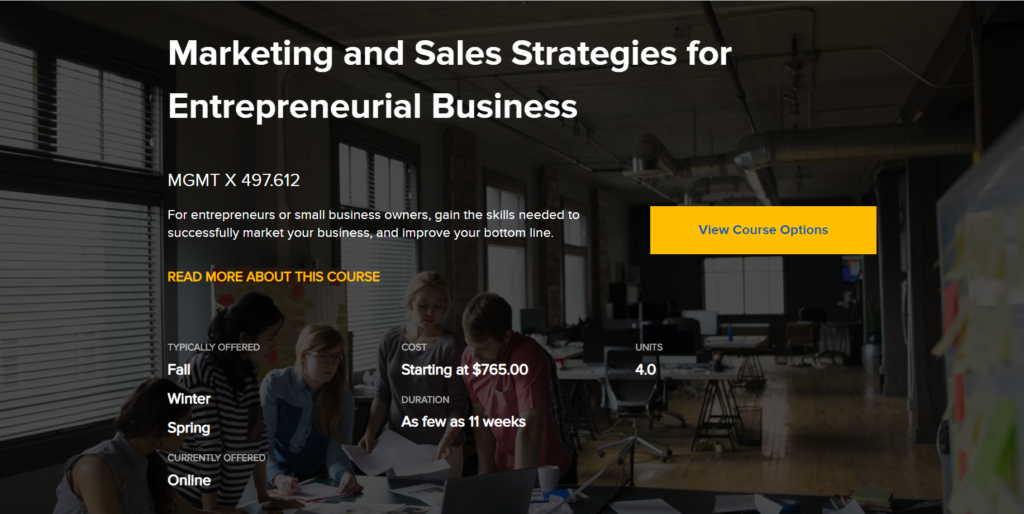
Use data to your advantage
Effectively utilizing the wealth of data available to you about your prospective students is the key to creating and optimizing a recruitment strategy that drives student leads and increases enrollments. If you’re ready to identify and influence your target adult learners, contact us today.
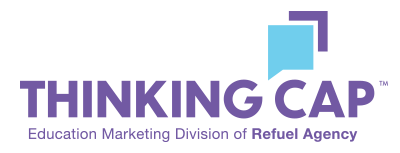

![Read more about the article How to Create Data-Driven Student Personas for Higher Education Marketing [+ Examples!]](https://www.thinkingcapagency.com/wp-content/uploads/2021/02/Data-Driven-Student-Personas-for-Higher-Education-Marketing-1-300x169.jpg)
